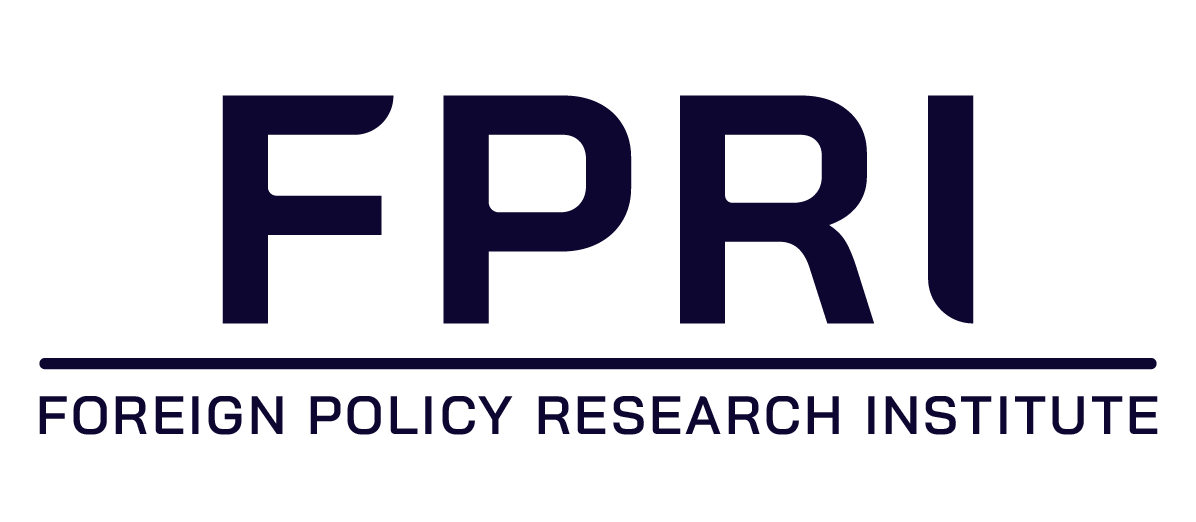A nation must think before it acts.
I grew up in the rural Midwest, the youngest of four siblings. I worked farm jobs, played sports, and never wore shoes as a kid. As an adult, I joined the Marine Corps and became an ultra-runner, eventually running across the country in 99 days.
I understand the utility of toughness.
So, I’m naturally drawn to leaders who are “tough,” resilient in their values, and persistent in their approach. I’ve admired Harry Truman, Abraham Lincoln, Margaret Thatcher, praised their accomplishments, and championed political policy that mirrors their tough approaches. I’m certainly not the only one. The United States has a long tradition of affinity for political toughness, encapsulated most famously by Walter Russell Mead in his presentation of the “Jacksonian Tradition” in 2000. In this piece, Mead argues for the existence of a growing body politic of American citizens who prize honor, individualism, and toughness as requirements of not only good leadership, but distinctly American leadership.
In recent years, some scholars have noted a resurgence of this tradition, arguably culminating in the mass appeal and election of President Donald J. Trump in 2016, with voters drawn to his “hard-nose personality” and “fighting spirit.”
Which makes sense—our founding national myths are enrobed in ideas of the tough underdog overcoming the odds. We champion the rebellion of our political ancestors and do our best to emulate their struggles, and victories, today. Or as Hamilton creator Lin-Manual Miranda more eloquently put it—Americans still consider themselves “young, scrappy, and hungry.”
But my and arguably many others’ loyalty to “toughness” is a cultural instinct, perhaps even nostalgic romanticism, rather than a product of careful consideration. After years of study and first-hand participation in the ultimate test of international toughness—war—I’ve found “tough” to be at times a necessary, but wholly insufficient, component of effective foreign policy.
The primary problem with being “tough” in foreign policy is that it has become an end rather than a means to create favorable outcomes. We champion toughness, even when it fails to meet our strategic objectives and sometimes even when it directly counters them. The American public and our policymakers have obfuscated the critical need for effective foreign policy with a misplaced crush on “tough” foreign policy. The initial invasion into Iraq serves as a key contemporary example. The famous “Shock and Awe” campaign conducted by the U.S. military, as part of an overall approach largely in synch with the Powell Doctrine, at least in part, by opting for overwhelming military force during the initial phases of the war—a key tenet of the war philosophy. Even more, polls at the time largely favored this policy, with upwards of 72% of Americans favoring the U.S. invasion of Iraq and over half claiming the war was “going well” after the initial campaigns. While overall support for the war declined steadily over the years, more than half of those asked supported the operation in its first two years despite U.S. policymakers and military leaders having little-to-no strategic plan beyond the initial “tough” invasion—leading to the concept of “The Lost Year in Iraq.”
Being tough is useful; it enables and supports resiliency and endurance—qualities that are particularly useful in the often tumultuous and always wicked problems of international relations. Toughness is an oft needed, but never enough, approach to policy. To use an arguably realist analogy, being the toughest boxer in the ring is useless if one is unable to win a bout.
It’s highly doubtful that the utility of toughness will ever completely recede into the annals of foreign policy history, but it is certainly waning, and the United States must adjust. Being tough was necessary for our founding mothers and fathers because it was what the situation dictated. Our nostalgic commitment to this tradition at the sake of all of the other tools we’ve acquired and honed over the past 200 years is damaging. Alexander Hamilton and George Washington had to draw on their “toughness” in establishing this nation because they didn’t have the capital or the clout to influence outcomes without it. War and rugged individualism were the best course of action in the 1700s, with the founding fathers holding open disdain for international alliances. That is no longer the case. This change in American clout is why many political scientists and scholars are deeply critical of the Trump administration’s “America First” approach to foreign affairs. Not only is it unnecessary and ineffective in a modern world, but it’s also counterproductive to the years of soft power “clout” that the United States has built since World War II. It’s become the biggest and only hammer in the U.S. toolbox, transforming every problem into a jagged rusted nail.
While there’s no evidence to suggest that we’re nearing an end to the utility of toughness, we’ve certainly moved past the era in which it reigns supreme and unchecked. Former advisor to Tony Blair and international relations theorist Robert Cooper argues that the order of the world post-1989 necessitates a new framing of its problems from which nations should derive strategy. Cooper divides the world into three elements: pre-modern (Afghanistan, Somalia, Liberia), modern (United States), and post-modern (European Union). Cooper argues that you can’t use post-modern solutions to solve pre-modern problems. Logically, it stands to reason that you can’t use third-world solutions to fix first-world problems. Again, toughness may still have a role here, but it must evolve to meet the challenges of today.
Being tough is all too often an image, which is important in international relations, but so is substance. As any parent or child psychologist knows, failing to follow through on a threat or reward can have a negative impact long after the initial event.
More than that, even when it is effectively applied in furthering strategic aims, it often fails to create actual enduring change. Being “tough,” even when necessary, is insufficient to create lasting change.
The failed endurability of “tough” approaches can be explained with the rational choice theory or Rational Actor Model (RAM), a cross-disciplinary explanation to understanding how individuals, or in the case of international relations, nation-states, make decisions. A tenet of the realist school and rightfully criticized for its parsimony, RAM can be understood and presented in a number of ways. Perhaps most simply, however, is the idea that all choices can be understood through the framework of preferences, beliefs, information, and action. The theory argues that actors will make decisions and behave according to their desired outcomes or preferences, the information available about a situation, and their beliefs regarding which course of action is most likely to achieve their desired outcomes. From this theory, foreign policymakers can affect change by altering one or more of those inputs. Policies can attempt to change the information available to other actors, their beliefs, or their preferences. We change the level of information available through a variety of means, such as layers of classification. We can attempt to change the preferences of an actor through soft or sharp power approaches, and finally we can change the beliefs of an actor through offering explicit or implicit rewards or punishments for behavior. We change the ultimate behavior of a targeted actor by making them believe that a particular behavior will result in a particular outcome.
Rewards and punishments, when smartly crafted, often work quite well in the short term, but what happens after that threat or reward is removed?
There’s a great deal of psychology experimentation and study into the utility and limitations of threats and rewards, including the famous forbidden toy study in 1963, conducted by Elliot Aronson and J. Merrill Carlsmith, in which pre-school-aged children were divided into two groups. The first group was presented with five toys and given a severe threat not to play with the top-ranked toy. The second group was presented with the same five toys, but given a milder threat, through the form of a gift, to play with the lower-ranked toys (and thus ignore the top-ranked toy). Ultimately, the researchers discovered that in the group facing the severe threat, the children complied temporarily. However, after the threat was removed, the children played with the “forbidden toy,” at a much higher rate than the children who were in the group with the milder threat. When the social control, or threat, was removed, the children were more likely to return to the behavior that the experimenters were attempting to control in the first place.
The psychological reasoning behind this experiment posited that the children with the milder threat or gift convinced themselves that the highly rated toy wasn’t actually that desirable. The desirability of the forbidden toy remained the same (or possibly increased) when associated with a severe threat. In other words, the children in the second group changed their preferences, while those in the first simply changed their behavior. When actors change their preferences, their behavior change is more lasting and resilient than when social controls are enacted.
When we use hard power or “tough” approaches, we change not the preference or values of the actor, but rather throw a roadblock to it. These approaches simply change the conditions. Sticks and carrots work as long as the initiator maintains the threat or reward, which requires resources: money, people, and capabilities. At times, maintaining these threats or rewards is unsustainable in the long term. Moreover, other actors have the ability to change the conditions to their favor (which may or may not be a desired outcome for the United States) by offering more severe threats or appealing gifts. Additionally, the targeted actor has the capability to work around the condition originally set, often by deception or denial. Again, once the researchers removed the severe punishment, the children played with the forbidden toy.
In international policy, the Joint Comprehensive Plan of Action (JCPOA) serves as a fantastic example of failing to maintain behavior controls. By imposing tough sanctions and threats for continuing a nuclear program, while offering the “gift” of economic inclusion, the international community was able to deter Iran’s behavior. In the two years after the JCPOA was enacted, Iranian gross domestic product soared. The carrot of lifting international sanctions, in turn, kept Iran compliant with “intrusive verification methods” outlined in the agreement, meaning Iran halted the continued enrichment of uranium needed for progress towards a nuclear weapon. Simply put, as a result of the JCPOA, Iran allowed inspectors access to their uranium enrichment facilities, and the international community was able to verify that Iran was not progressing towards a nuclear weapons program. However, once the United States pulled out of the program, the conditions regressed closer to the original ones, and the behavior returned, with Iran exceeding the limits of stockpiled enriched uranium and beginning to enrich uranium at a higher concentration. While other signatories maintain a commitment to the deal, President Trump’s threats to reinstate sanctions continue to undermine Iranian compliance. If Iran will no longer receive the economic benefits of the agreement, then it is unlikely to continue any of its agreed upon behavior. Adding to the situation, the killing of Iranian military leader General Qasem Soleimani (another display of American “toughness”) led Iran to release a statement announcing that it would no longer limit its nuclear program despite continued European support of economic trade.
The Paris Climate Accord serves as an example of changing preferences and/or social/international norms (although it is fair to point out that the very large threat of climate annihilation is still a motivating factor, but no country is actively creating that threat for the purposes of behavior change). Even when the United States withdrew from the agreement, many of the signers maintained their changed behavior. Of the 197 nations party to the Paris Climate Convention, 189 nations have ratified the agreement, highlighting an overwhelming preference change and showing behavior modification without threats or rewards. The United States’ withdrawal, as such, offers no incentives to other parties to exit. The only reward offered in the treaty is financial support to assist countries in achieving the common objectives outlined. The treaty requires each country to assess their own progress in achieving those objectives, but does not offer a threat (or even a metric) to those countries who failed to meet their goals. The entire framework of the agreement (and thus its success) is dependent on whether or not the actors have changed their preferences enough to change their behaviors. As a result, when one nation leaves that agreement, the rest of the parties maintain their internal motivations to uphold their promises.
Foreign policy has never, and can never, be a product of a slim toolbox. The United States is best served when equipped with an arsenal of resources and approaches readily available. More than that, those crafting and implementing these policies must maintain an uncanny capability to not only wield these tools with both nuance and power, but also be able to choose the right set of tools as the situation dictates. We must begin to prioritize desirable outcomes over tough behavior. Toughness is a means to an end, not an end in and of itself, and the continued shift away from this understanding will result in increasingly truncated policies and half-measured, short-sighted attempts to influence foreign affairs.
The views expressed in this article are those of the authors alone and do not necessarily reflect the position of the Foreign Policy Research Institute, a non-partisan organization that seeks to publish well-argued, policy-oriented articles on American foreign policy and national security priorities.



